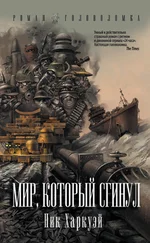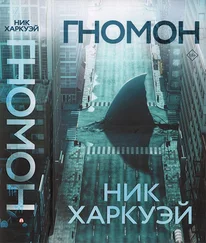‘I didn’t know she was interviewing me. And I said it was a personal opinion.’
‘You don’t have personal opinions, Lester! You’re standing in the house, wearing the bloody hat! You are Britain! Do you understand? You are your country, you are your uniform, and you are me!’
From nowhere, it rose in him, unexpected. ‘I thought you were Africa.’ He heard her hiss, hurried on. ‘I mentioned one issue which is not a major part of the picture here in response to a query I took to be off the record.’
‘She is a journalist, Sergeant Ferris. Nothing is off the record if she is within earshot. The interview is happening if she is in the room. The camera is always rolling. The microphone is always live. So now your interview is up. The audio is on the Internet. Your little informal chat is playing, on a loop, on her nasty little news channel. You have added to the burden of what was already shaping up to be a shitty day and I am unhappy with you. Do you understand?’
‘Yes, ma’am.’
‘And with reference to this specific issue?’
‘Ma’am.’
‘It is a non-topic. You have no opinion on it, personal or otherwise. Like everything else on Mancreu, it is invisible. All things there are invisible but some things are more invisible than others. Like this. Is that clear?’
‘Yes, ma’am.’
‘Because if it’s not clear, Lester, then get a sewing kit and just stitch your fucking mouth closed for the duration. You can eat through a straw. All right?’
She hung up before he could say ‘Ma’am.’
More invisible than others.
He sat with the phone in his hands, and knew that he had reached the end of reasonable hesitation. There were two more things which might be permitted to him by integrity before he had to act, or not act, and bear the consequences of the choice. The first thing he might do was go to the headland and look out at the Bay of the Cupped Hands, really look, and see what it was he had ignored since his booted foot first touched the grimy dockside of Port de Beauville, since the Consul had met him and taken his hand.
‘It’s a good place,’ the man had said. ‘No, no, keep looking at me and pretend we’re exchanging information of towering importance. That’s it. Yes, as I say: you’ll like it here. But don’t get involved. The sheer appalling fuckup of it will eat you alive. Just sit on the veranda and finish the booze. I’ve laid in extra. That fellow Kershaw’s all right – you’ll meet him later. Looks like a rodent, but he knows what food should taste like. Don’t in the name of God let him talk to you about the war.’
‘Which one?’
‘Any of them, but most particularly the one with the Nazis. He has that extraordinary idea that the Americans saved us out of the kindness of their hearts rather than us digging in for two long years while they tried to pretend they weren’t involved. Oh, no, don’t look at the ships out there, the locals consider it rude, just keep your eyes on me. That’s right.’
And he, bewildered and barely out of bed, had taken that at face value and never questioned it, had shaped his world around it because it was Mancreu’s underpinning, like the dog beneath the flea. Don’t look at the ships .
So now he might go to the headland and say, ‘I see you.’ A formal declaration. He had done it before, elsewhere: stared into the dark or the mountains or the sand and made some sort of pledge, given himself a goal or issued a warning. ‘I will bring you home’; ‘I know you’re out there.’
But the Fleet would not hear him and in any case it wasn’t the ships out there he had to acknowledge. It was the ones here, in Brighton House, at the back of the comms room.
The comms room desk was a nasty, modern thing, more a trestle table with a laminate top. It was covered in a hotchpotch of digital technology: two phones, an actual one-time pad, a desktop computer and a large brick of plastic which was copier, scanner, fax and printer. The chair in front of it resembled some sort of gibbet or mechanical stork, but was surprisingly cosy with a fleecy airline blanket draped over it. Two desklamps sat at either end of the trestle like bookends, defining the world – and if you turned towards the door they threw a stark shadow from the reinforced lintel across the wall, reminding you that, yes, the comms room could withstand a significant amount of punishment before any hostile force gained entry, giving you time to destroy the files.
And what files would those be? What, on Mancreu, could still be important enough to worry about? The ones in the inappropriately cheery orange filing cabinet – with built-in hard drive and shock-protected battery power supply – in the far corner. The copies of the daily correspondence arriving by email and encrypted transfer, and occasionally by courier pouch, which the Sergeant routinely stamped and put away but did not ever read. The bureaucratic echo of the actual Fleet and the legal niceties surrounding it, all indexed and – there was no verb, he realised, or not one that he knew, for the modern process of tagging with keywords. Indexed, then, and categorised, and sitting there like a crab bloated with rotten fish and carrion.
He did not need to go to the headland to make his challenge. He could do it here. Must, indeed, because the headland was an evasion. This was the stinking corpse in his own house.
The second thing he might do – the only thing, in his adjusted perception – was talk to the boy.
Things were moving rapidly, but not nearly so fast as they would once he possessed himself of the knowledge in those folders and took direct action against a ship in the Bay of the Cupped Hands to retrieve Sandrine. Stumbling over the heroin in the cave had been bad, but it was in the worst event a defensible position. Trading in drugs was too embarrassing to make much of a fuss over in public. Launching a commando raid on a non-official but very much sanctioned intelligence operation would be another sort of thing. It was more than likely that he would fail, and in failing he would be revealed. He had undertaken missions like that before and been lucky, but you had to be clear about the odds and the consequences of failure. The political leadership had to be clear about the cost.
The boy was to all intents and purposes the political leadership. One could argue that he needed to know the extent of the Sergeant’s exposure, and what he might otherwise offer: a home, a name. A father.
But one might also say that the boy was a child and that it was the job of a father, for just a little longer, to spare his son this sort of choice: I can try to save your mother, but it may mean that I die or am taken from you. An absurd decision, grinding one desperation against another – the sort of dilemma beloved of the four-colour villains in the boy’s comic books. Forcing him to choose was a destruction in all directions: whatever answer he gave he must hate, and by extension hate to some degree the object of his love for pressing it upon him.
And then, too, it smacked of cowardice, of a request to be let off the hook – and laying that at the door of the boy wrapped in the guise of partnership was unconscionable.
So instead of going to the café or the docks to look for his friend, or using the phone to call a summit conference, he made a cup of tea in silence. In the tradition of sergeants he stewed it orange-brown and loaded the cup with sugar so that it was less tea than it was a rich liquid caramel filled with tannins and caffeine. You could have used it for caulking.
With this in hand, he returned to the comms room and rested his backside on the trestle table. He took a sip and winced at the sickly, too-hot stuff as it mixed with the saliva in his mouth. He swallowed. Seven cups of black tea a day increased your risk of prostate cancer, he’d read somewhere, and drinking liquids above a certain temperature did the same for the sort you got in your throat. If it wasn’t one thing, it was another.
Читать дальше








![Ник Харкуэй - Гномон [litres]](/books/400023/nik-harkuej-gnomon-litres-thumb.webp)



